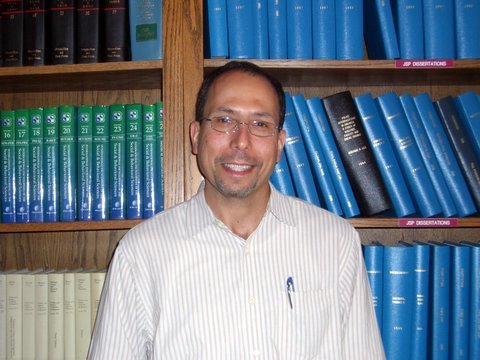Why She Quit the Prison System
The state of California's massive prison system remains a subject of rare public discourse this week as the California Legislature is back for a special session largely focused on approving more money for corrections (more on that in a minute) and an election for governor looming in November. Schwarnegger called the special session arguing that for his reform and rehabilition oriented corrections vision to work, the system had to build enough new prison space to get ahead of the current overcrowding. It is true that California prisons are running well beyond design capacity and that space for any kind of rehabilitative programming is largely taken up with beds. The Governors proposal also includes some measures that are attractive to those opposed to an ever expanding prison system. Some new money would go into creating community facilities where prisoners pending release could get started in "reentry" before beginning their period of parole and the Governor would also move a large portion of the state's female prisoners to new facilities closer to the communities and families they come from. Critics support both of the latter proposals but argue that the much larger share of the money going to expanding the state's base of prisons will only lead to more overcrowding in an even larger system.
Its not clear how much difference Schwarnegger's open appeal to reform and rehabilitation really differentiates this moment for others over the past tweny years during which the executive and legislative branches have been mutually engaged in expanding the prison system. But one clear difference is the emergence of some key critics who are not part of the political elite in Sacramento and yet closer to power than academic critics (like your Jurisprude). On is Special Master John Hagar, whose blistering report and hearings were discussed in an earlier posting. This week sees the emergence of an even more unique voice for reform, that of Jeanne Woodford, former warden of San Quentin, former Director of the Department of Corrections, and until April, acting head of the Youth and Adult Correctional Agency (which oversees both the Department of Rehabilitation and Corrections and the state's juvenile justic system).In a Los Angeles Times editorial column, on August 6, 2006, Woodford offered her first public statement on why she resigned that job last spring, only weeks after stepping in to fill the post when her predecessor, Rod Hickman resigned. Her reasons were simple enough. She left San Quentin where she already had a reputation as a reformer, to take over the statewide agency in belief that Governor Schwarznegger, who ran promising to blow up the boxes of California state government, would reform a real agenda for the first time in decades.
But despite high hopes at the inception, the reality is that not much has changed. Because of short-term political concerns on the part of state legislators, pandering campaign tactics that make politicians scared to be seen as soft on crime, and the extraordinary power of the correctional officers union, it's been impossible to truly turn around the system. Chronic underfunding and prison overpopulation continue, and the recidivism rate remains the highest in the country.Woodford speaks for the unique perspective of a career spent entirely in California prisons, starting as a 24 year old correctional officer at San Quentin. During her time, the inmate population went from 26,000 to 170,000 and the budget of the Department of Corrections and Rehabilitation will exceed 8 billion dollars notwithstanding chronic overcrowding an a medical system so broken that the state allowed it to be taken over by the federal government without opposition. What she has seen and understood is a story California voters need to know and which cannot almost certainly will not be part of the public discourse this election cycle or any other so long as both major political parties remain locked in a competition over who will act tougher against crime.
Neither Schwarzenegger nor his Democratic opponent, Phil Agelides, has shown any willingness to challenge the prevailing wisdom that locking the the way to govern well is to put the maximum number of people up for as long as possible. The fear of broaching that apparent consensus, and not the dollars of the Correctional Officers' union is what makes it very difficult for voices as qualified as that of Jeanne Woodford to change current course toward an ever more penal state. Still this is a time with more potential for a broad debate about penal policy to break out than any in recent memorh. California has openly admitted that its basic capacity to manage the present prison population is in a crisis. Even the request for more prisons is being made in the name of making space for reform programs rather than on the ability of more prisons to make Californians safer. A growing body of proposals for reforming the California system have been put forward by organizations like the Little Hoover Commission and the National Council on Crime and Delinquency. Jeanne Woodford is in a unique position to help convince the public of the need for fundamentally new thinking in correctional policy. One hopes that this op-ed piece is the first and not the last of her efforts to educate the public on why she quit the prison system.


0 Comments:
Post a Comment
<< Home